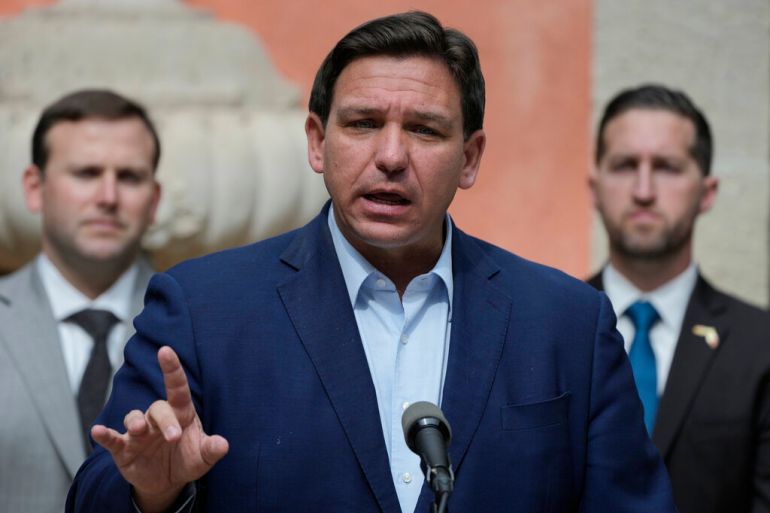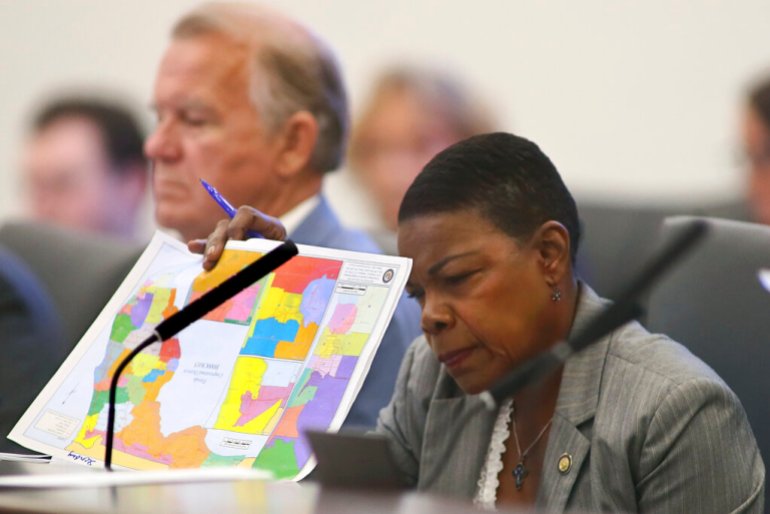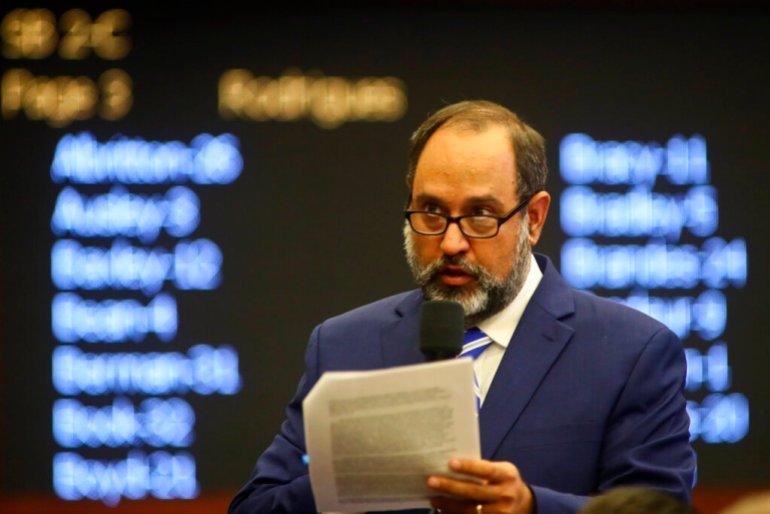Florida adopts new US election map in likely boost to Republicans
Black legislators protest as state legislature endorses Governor Ron DeSantis’s proposal to change US congressional map.

A new Florida congressional map proposed by Governor Ron DeSantis has been approved by the Republican-led state legislature, setting up a likely advantage for Florida Republicans in November’s US elections.
The map, which sets voting boundaries for members of Congress, is projected to increase the number of Republicans representing Florida in the US House of Representatives to 20 from 16. Democrats stand to lose three House seats, going from 11 to eight, political analysts have said.
Keep reading
list of 4 itemsUS Justice Dept sues Texas over voter maps, citing discrimination
What you need to know about hotly debated US voting laws
‘Keep up the fight’: Biden pledges defence of US voting rights
Democrats protested the new congressional map as a product of intentional partisan “gerrymandering” that will make it more difficult for Black candidates to run for office.
Florida’s congressional map was redrawn as part of a nationwide redistricting process in the United States in which seats in the US House of Representatives are reapportioned to reflect population changes. Florida is adding a seat because of population growth following the 2020 Census.
Black lawmakers staged a sit-in on the floor of the Florida House on Thursday as debate about the maps was nearing an end. State representatives Angie Nixon and Tray McCurdy opened up their suit jackets to display “Stop The Black Attack” T-shirts and shouted the same phrase.
They sat on the state seal in front of the House speaker’s rostrum and were soon joined by other Black Democrats and other supporters.

But after a brief delay, the Republican-controlled legislature gave final approval to DeSantis’ proposed map. The state Senate had approved the map in a 24-15 vote along party lines during a special session on Wednesday.
If the DeSantis plan holds up against legal challenges, it would offset gains Democrats have made in redistricting plans in states such as Illinois and New York. The Republican governor’s plan could see two of Florida’s five Black members of the US House lose their seats.
State Senator Shevrin Jones said the maps “trample on marginalised people”.
“You have to do self-reflection on whether we are doing the right thing. We’re just not,” Jones said.
Republican state Senator Kelli Stargel argued the new DeSantis map would not hurt minorities’ chances of getting elected. “To say that these maps, as they’re drawn today, are hurting minorities, I believe, is not accurate,” she said.
“These are constitutional maps. I think they’re very thoughtful. I don’t think any of us who vote for them today are racist or following the direct will of the governor. We’re doing our constitutional requirement.”
Florida’s process for adopting the new congressional map has been fraught with controversy and legal battles.
DeSantis, who is a potential 2024 presidential candidate, in March vetoed a map drawn by the Republican legislature that was seen as more politically neutral.
Republican legislators then requested DeSantis provide a new proposed map, rather than revise theirs. Democrats objected that was an overreach of DeSantis’ power.
Republicans rejected those arguments but rubber-stamped DeSantis’s plan in a reversal of previous institutional roles at the state capital in Tallahassee.
“The governor has always had a role in districting. Not just Governor DeSantis, but every governor in the state of Florida, because no reapportionment plan is complete for a congressional map until the governor has signed it,” said state Senator Ray Rodrigues, a Republican who chaired the Senate Reapportionment Committee.

“This map will favour Republicans in 70 percent of the districts,” said Florida Senator Tina Polsky, a Democrat.
“But Republicans make up 36 percent of the registered voters in this state. So we are going to have an incredible imbalance in this state, and that is exactly what gerrymandering is, where the state does not represent its constituents.”
Of Florida’s 14.3 million registered voters, about 36 percent are Republicans, 35 percent are Democrats and most of the rest are independents who have not registered a party affiliation.